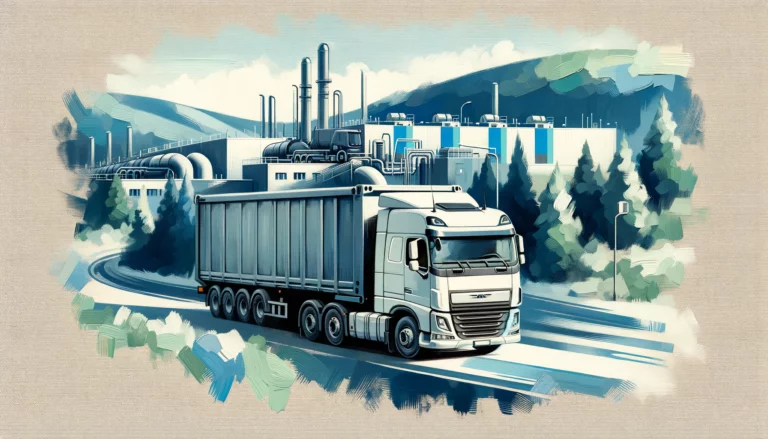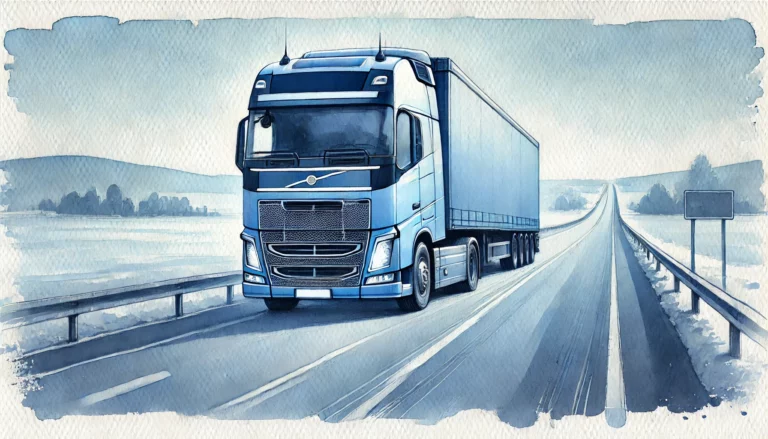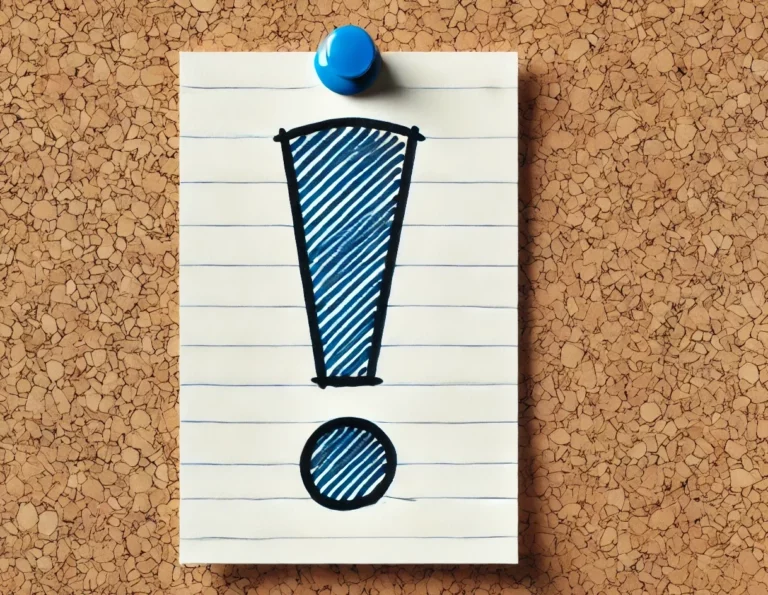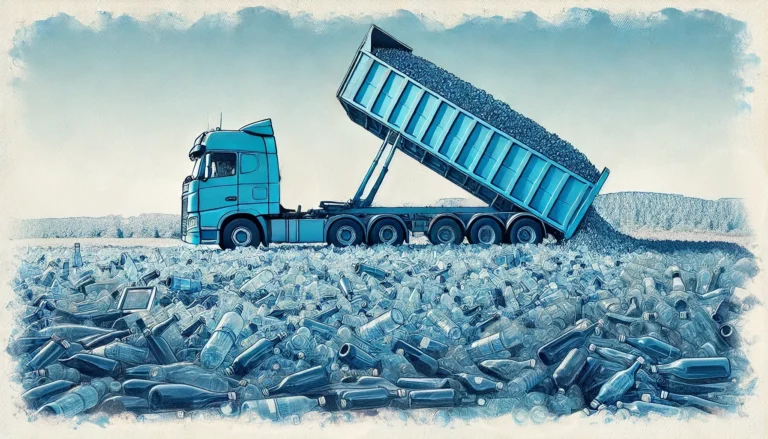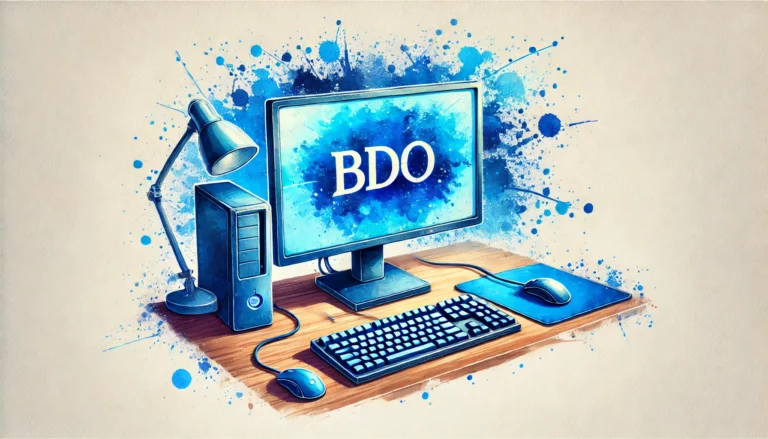Beyond borders: how BDO and SENT transform Poland’s waste management
Efficient and responsible waste management is a priority in Poland, especially as environmental standards evolve globally. Within this framework, two vital systems, BDO and SENT, serve as pillars of Poland’s regulatory approach to waste monitoring and transport. These systems not only streamline compliance but also uphold critical environmental standards. The BDO system, or Waste Database, focuses on the registration and documentation of waste management activities. Meanwhile, SENT (System for Monitoring Transport of Goods) regulates the transport of certain goods, including hazardous materials and waste, across Polish borders.
Do you want to know more abut BDO or SENT registration? Contact us:
office@wastetransportsolutions.eu
Together, these systems form an essential cooperation that strengthens Poland’s environmental oversight. The integration of BDO and SENT ensures that waste, particularly hazardous waste, is not only managed correctly but also transported in compliance with Poland’s environmental laws. This collaboration minimizes the risk of illegal waste disposal and improves the accountability of companies handling or transporting waste in the country.
The BDO system in Poland: Origins, purpose, and requirements
The BDO system was established to create an organized, transparent approach to waste management. Its foundation lies in Poland’s 2012 Waste Act, which mandates registration for companies engaged in waste production, handling, or management, although the BDO itself began operating since 24 January 2018. The Ministry of Climate and Environment manages BDO, and companies in sectors like manufacturing, retail, and transportation are often required to register.
BDO’s primary function is to record data on waste generation, collection, and processing. The system also tracks how waste is treated, which helps enforce recycling and recovery obligations. Companies registered in BDO must document waste quantities and specify whether they recycle or dispose of it. This level of detail ensures Poland’s environmental agencies can track waste at every stage, preventing harmful practices like illegal dumping.
For companies, the BDO system mandates comprehensive registration if they generate, handle, or transport waste in Poland. This includes foreign entities operating in Poland. Non-EU companies, especially those handling hazardous or regulated materials, must also register with BDO to comply with Polish law. The process involves providing detailed information on waste types, handling methods, and compliance with disposal regulations.
BDO reflects Poland’s commitment to managing waste responsibly. By demanding clear documentation from companies, BDO helps foster a transparent waste management system that aligns with EU standards and environmental targets. It underscores Poland’s proactive stance in reducing waste mismanagement and promoting sustainable practices.
Introduction to the SENT System in Poland: legal foundation and role
The SENT system focuses specifically on monitoring the transport of certain sensitive goods, including waste. SENT was established in 2017, under the Transport Monitoring Act, to regulate the movement of high-risk goods in Poland. Initially, SENT targeted products like fuels, alcohol, and tobacco, where tax evasion risks were high. Over time, its scope expanded to include waste, especially as concerns over environmental safety increased.
SENT’s core purpose is to prevent the illegal transport of high-risk materials. By closely tracking goods from their point of origin to their final destination, SENT ensures that only authorized companies transport potentially hazardous items. The system collects transport data and enables real-time monitoring, allowing Polish authorities to intervene when necessary. This approach minimizes the risks associated with transporting hazardous materials, from environmental damage to public health risks.
Foreign companies transporting goods, especially waste, into or through Poland must comply with SENT. It requires these companies to declare the goods they are transporting, providing details such as quantity, destination, and purpose. This regulation applies regardless of the company’s origin, ensuring a consistent approach to waste transport across Polish borders.
By monitoring transport, SENT works to improve legal compliance and minimize risks in waste transportation. This monitoring system not only protects Poland’s environment but also ensures that companies cannot exploit regulatory loopholes in cross-border transport.
Complementary nature of BDO and SENT systems
BDO and SENT complement each other in a mutually beneficial way. BDO regulates the waste generated and managed within Poland, while SENT focuses on the transportation of waste across borders. When combined, these systems create a complete cycle of oversight, from waste generation to transport and disposal.
The relationship between BDO and SENT is especially crucial for waste management companies. Companies handling waste, particularly hazardous materials, must comply with both systems if they wish to operate in Poland. Registering with BDO ensures that waste activities are recorded and meet Polish regulations, while SENT guarantees that the transport of these goods complies with national safety standards.
The dual registration requirement highlights Poland’s emphasis on safe and lawful waste handling. By requiring companies to register in both BDO and SENT, Poland can better monitor the waste lifecycle, ensuring that it is properly disposed of or recycled. This dual compliance helps prevent incidents of illegal waste dumping and mismanagement, reinforcing Poland’s commitment to sustainable and transparent waste practices.
For companies, understanding the dual nature of BDO and SENT is essential. Proper registration in both systems is not only a legal obligation but also a step towards contributing to Poland’s environmental goals. Whether the waste remains within Poland or crosses its borders, both systems provide the necessary structure to manage waste responsibly.
Importance of dual compliance for waste management companies
Complying with both BDO and SENT is mandatory for companies dealing with waste in Poland, especially if they transport or generate waste on a significant scale. The legal obligations are clear: failing to register in either BDO or SENT can lead to fines, operational delays, and even a ban on transporting goods within Poland.
For non-EU companies, this compliance might involve additional preparation, especially if they are new to Polish regulations. Registering in BDO is often the first step, as it allows companies to declare their waste-related activities and verify their compliance with Polish standards. Next, SENT registration is required for transport activities, ensuring that goods are transported safely and with transparency.
Besides legal benefits, dual compliance with BDO and SENT contributes to environmental and operational benefits. BDO ensures companies manage waste responsibly within Polish borders, while SENT facilitates safe transport. By integrating both systems, Poland achieves greater oversight, reducing the likelihood of environmental harm. This oversight strengthens Poland’s position in the EU as a leader in responsible waste management.
Preparing for compliance with BDO and SENT in 2025 and beyond
As of November 1st, 2024, SENT requirements will become mandatory for non-EU companies. This expansion is a significant change, making compliance essential for any company moving goods across Polish borders. The SENT registration process includes declaring the type, amount, and destination of goods, especially those considered high-risk, like hazardous waste. Starting from 2025, SENT registration requirement will extend for EU-based companies.
EU companies transporting waste must now align their operations with SENT requirements. Proper preparation involves understanding SENT’s declaration and documentation process, as well as complying with BDO for waste-related activities within Poland. Both systems require clear, detailed documentation, which is crucial for smooth operations.
Frequently asked questions on BDO and SENT systems
- What types of waste require dual registration in BDO and SENT? Dual registration applies to all kinds of waste and materials that are deemed high-risk for transport. Both non-EU and EU companies involved in these activities must comply with BDO and SENT.
- How can Non-EU companies complete BDO and SENT registration? Non-EU companies can complete both of their registrations by contacting us. We’ll take care of the rest comprehensively.
- Are there penalties for non-compliance with both systems? Yes, non-compliance can lead to fines, seizure of goods, or restrictions on business activities within Poland. Both BDO and SENT are strictly enforced to protect Poland’s environment and maintain legal standards.
- How will SENT requirements impact EU companies in 2025? From January 2025, EU companies will also need to comply with SENT if they transport waste through Poland. This change underscores Poland’s commitment to robust waste monitoring across the EU.
The future of BDO and SENT cooperation in Polish waste management
The cooperation between BDO and SENT underscores Poland’s dedication to comprehensive waste management and environmental protection. Together, these systems form a strong regulatory structure that aligns with European standards. For companies involved in waste activities, understanding and complying with both BDO and SENT is crucial. This dual compliance ensures not only legal operation but also supports Poland’s environmental goals and helps minimize the risks associated with waste transport and disposal. As these systems evolve, they will continue to drive sustainable practices, reinforcing Poland’s leadership in responsible waste management.


